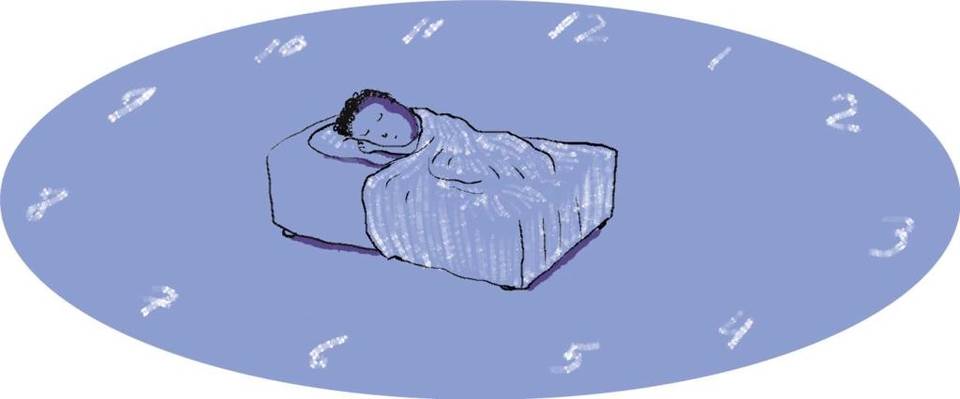It might not be a tantrum. Your sleepy child could be overtired.
HEALTH & FITNESS | MARCH 20, 2017 7:35 PM | BY LEONARDO TORRES, M.D. UHealthSystem.com
She’s cranky and uncooperative. He’s hyperactive and having difficulty paying attention. They can’t wake up in the morning and are falling asleep at the kitchen table.
If this is your child, they might not be getting enough sleep — even though you are getting them to bed on time and keeping them on a schedule.
Sleep is essential for brain development and health. When your kids don’t get enough sleep, they can suffer in school, have mood issues and get sick more easily. Lack of sleep isn’t the only thing that can impact your kids’ health. Poor sleep quality can cause a decline in school performance and affect mood. A chronic sleep disorder can also stunt physical growth.
There are many reasons kids suffer from sleep disturbances. Recognizing these symptoms will likely first fall on parents. You should be on the lookout for snoring, excessive movement while sleeping, teeth grinding, difficulty waking, early morning confusion and falling asleep unusually quickly. Your pediatrician or pediatric sleep specialist will use your feedback and patient history to diagnose:
Sleep hygiene
Children need good sleep structure. Your child should develop a sense of when it is time to sleep based on their nightly routine. This includes an established bedtime and providing your kids with time free of TV, phone and tablet screens. In addition, your child’s room should be set at a comfortable temperature.
To maintain good sleep hygiene, this nighttime routine must be consistent. If your kids do wake up during the night, provide them comfort, but return them to their bed as soon as possible. Stick to the routine and make note of any changes or disturbances that could be the culprit for your child’s sleep disruption.
Parasomnias
Parasomnias involve sleepwalking, sleep talking, and night terrors or nightmares. Sleepwalking and talking is when your child acts awake but is actually sleeping. They can be found walking around the house and can say a few words or have a full conversation. It tends to occur during the first third of the night. Kids ages 4 to 8 are more susceptible to parasomnias, which usually run their course over time.
During night terrors, your child abruptly shows signs of fear, panic and confusion and appears to be trying to escape. They tend to occur in the first third of sleep. Unfortunately, trying to wake up your child might be impossible and actually make the terror worse, so your best course of action is to let your little one experience the night terror. But don’t worry. Your child won’t remember what happened the next morning.
Nightmares, in contrast, are vivid dreams that contain frightening images or cause negative feelings such as fear, terror and anxiety. Kids will be able to recall the nightmare, so comfort them as best as possible. Expect nightmares during the second third of their sleep.
Other abnormal sleep includes deep sleep movement disorders, where children can have increased muscle tone allowing them to physically move and act out their dreams. If you notice this happening, protect your child from trips and falls.
Restless leg syndrome
Restless leg syndrome is when a child moves their legs or arms. It’s usually associated with uncomfortable sensations described as creeping, crawling, tingling, burning or itching. It is important to rule out an iron deficiency when evaluating a child with this disorder.
Noisy breathing and snoring
Sleep disturbances can result from noisy breathing or snoring. Infants often have different noises while sleeping. Because certain noises can indicate breathing difficulty, sleep experts sometimes request a video of the infant sleeping to listen for a high-pitched noise that indicates an immature, narrowed upper airway restricting oxygen intake. Typically the condition resolves itself. However, if it affects the baby’s sleep or growth, a simple surgery can improve the condition.
Snoring is the most common type of noise parents report. Snoring is often associated with obstructive sleep apnea, where there is a complete or partial collapse of the airway causing a decreased oxygen level. Your child will wake up to resume normal breathing. These awakenings last only a few seconds, but they can occur multiple times, ruining sleep quality. A sleep study, which monitors your child’s sleep, can diagnose this problem, which is often caused by large tonsils and adenoids. It’s easily corrected with outpatient surgery to remove the tonsils and adenoids.
Early diagnosis and proper treatment of all sleep disorders can improve quality of life and avoid potential long-term consequences like excessive hyperactivity with learning difficulties, relationship issues and other problems. If you suspect your child has a sleep disorder, consult your pediatrician or schedule an appointment with a pediatric expert at UHealth by calling 305-482-5530.
Leonardo Torres, M.D., is a pediatric ear, nose and throat doctor specializing in airway and breathing problems at the University of Miami Health System. For more information, visit UHealthSystem.com/patients/pediatrics.
Dr. Leonardo Torres, a pediatric ear, nose and throat doctor specializing in airway and breathing problems at the University of Miami Health System.
Dr. Leonardo Torres, a pediatric ear, nose and throat doctor specializing in airway and breathing problems at the University of Miami Health System. Photo provided to the Miami Herald





